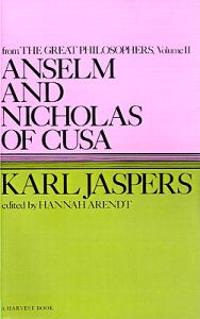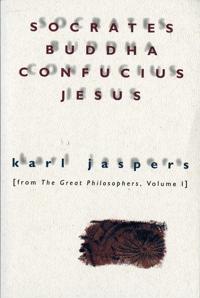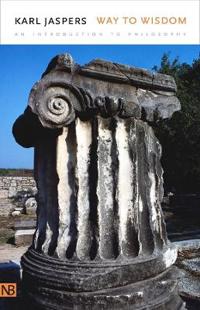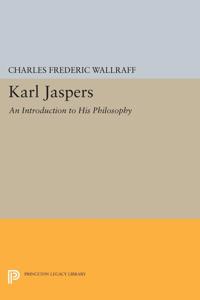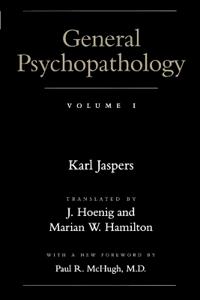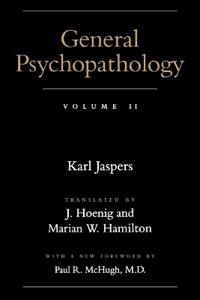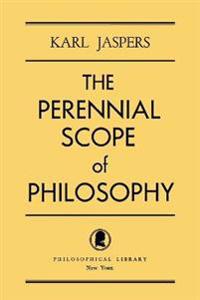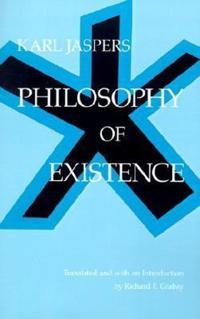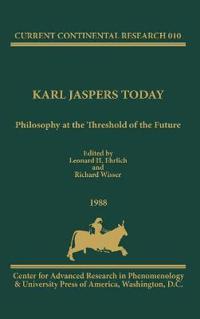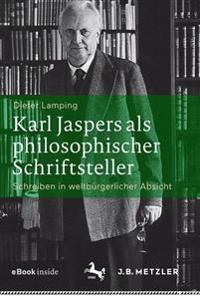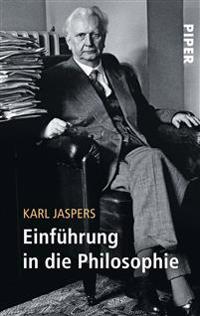Karl Jaspers (Häftad)
avKarl Jaspers, Leonard H. Ehrlich, George B. Pepper
ISBN: 9781573925297 - UTGIVEN: 199908Karl Jaspers (1883-1969) is one of the most original and seminal thinkers of the twentieth century. Rich in ideas, vast in scope, far-ranging and complex, his work is distributed over a large corpus of writing. In fact, it is just the very size and the range of his thought that have tended to make J[...]
Anselm and Nicholas of Cusa (Häftad)
avKarl Jaspers, Ralph Jaspers, Hannah Arendt
ISBN: 9780156076005 - UTGIVEN: 1974-10Taken from the Great Philosphers, Volume II.
Kant: From the Great Philosophers, Volume 1 (Häftad)
avKarl Jaspers, Jaspers
ISBN: 9780156466851 - UTGIVEN: 1966-03A masterful exploration of Kant's intellectual development, theory of knowledge, politics, and ethics. Edited by Hannah Arendt; Index. Translated by Ralph Manheim.
[...]Der Briefwechsel Zwischen Hannah Arendt Und Karl Jaspers Von 1926-1969. Jaspers Anmerkungen Uber Die Wiedervereinigung Deutschlands (häftad)
ISBN: 9783656068099 - UTGIVEN: 2011-11Anaximander, Heraclitus, Parmenides, Plotinus, Lao-Tzu, Nagarjuna (Häftad)
avKarl Jaspers, Hannah Arendt
ISBN: 9780156075008 - UTGIVEN: 1974-10Taken from the Great Philosphers, Volume II.
Socrates, Buddha, Confucius, Jesus: From the Great Philosophers, Volume I (Häftad)
avKarl Jaspers
ISBN: 9780156835800 - UTGIVEN: 1966-03Spinoza (Häftad)
avKarl Jaspers, Hannah Arendt
ISBN: 9780156847308 - UTGIVEN: 197410Taken from the Great Philosphers, Volume II.
One Century of Karl Jaspers' General Psychopathology (Häftad)
ISBN: 9780199609253 - UTGIVEN: 2013-072013 sees the centenary of Jaspers' foundation of psychopathology as a science in its own right. In 1913 Karl Jaspers published his psychiatric opus magnum - the Allgemeine Psychopathologie (General Psychopathology). Jaspers was working at a time much like our own - with rapid expansion in the neuro[...]
Way to Wisdom (Pocket)
avKarl Jaspers, Ralph Manheim, Richard M. Owsley
ISBN: 9780300097351 - UTGIVEN: 200306One of the founders of existentialism, the eminent philosopher Karl Jaspers, here presents for the general reader an introduction to philosophy. In doing so, he also offers a lucid summary of his own philosophical thought. In Jaspers' view, the source of philosophy is to be found "in wonder, in doub[...]
Man in the Modern Age (Häftad)
avKarl Jaspers
ISBN: 9780415572828 - UTGIVEN: 2009-12First published in English in 1933, this detailled philosophical examination of the contemporary state and nature of mankind is a seminal work by influential German philsopher Karl Jaspers. Elucidating his theories on a variety of topics pertaining to contemporary and future human existence, Man in [...]
The Origin and Goal of History (Häftad)
avKarl Jaspers
ISBN: 9780415578806 - UTGIVEN: 201104First published in English in 1953, this important book from eminent philosopher Karl Jaspers deals with the philsophy of the history of mankind. More specifically, its avowed aim is to assist in heightening our awareness of the present by placing it within the framework of the long obscurity of pre[...]
Karl Jaspers
ISBN: 9780691621081 - UTGIVEN: 2015-03The thought of the late Karl Jaspers, co-founder of the existentialist movement, has long exerted a powerful influence on world opinion. But, surprisingly, though translations of his writings have appeared in over 160 editions in 16 countries, his strictly philosophical work has hitherto been largel[...]
General Psychopathology (Häftad)
avKarl Jaspers
ISBN: 9780801857751 - UTGIVEN: 199711Volume 1
In 1910, Karl Jaspers wrote a seminal essay on morbid jealousy in which he laid the foundation for the psychopathological phenomenology that through his work and the work of Hans Gruhle and Kurt Schneider, among others, would become the hallmark of the Heidelberg school of psychi[...]Nietzsche (Pocket)
avKarl Jaspers, Charles F. (TRN) Wallraff, Frederick J. (TRN) Schmitz
ISBN: 9780801857799 - UTGIVEN: 1997-09Nietzsche claimed to be a philosopher of the future, but he was appropriated as a philosopher of Nazism. His work inspired a long study by Martin Heidegger and essays by a host of lesser disciples attached to the Third Reich. In 1935, however, Karl Jaspers set out to "marshall against the National S[...]
General Psychopathology (Pocket)
avKarl Jaspers, J. Hoenig, Marian W. Hamilton
ISBN: 9780801858154 - UTGIVEN: 199711Volume 2
In 1910, Karl Jaspers wrote a seminal essay on morbid jealousy in which he laid the foundation for the psychopathological phenomenology that through his work and the work of Hans Gruhle and Kurt Schneider, among others, would become the hallmark of the Heidelberg school of psychi[...]Philosophy of Existence (Häftad)
avKarl Jaspers
ISBN: 9780812210101 - UTGIVEN: 197101Philosophy of Existence was first presented to the public as a series of lectures invited by The German Academy of Frankfurt. In preparing these lectures Jaspers, whom the Nazis had already dismissed from his professorship at Heidelberg, knew that he was speaking in Germany for the last time. Jasper[...]
Karl Jaspers Today (Häftad)
avLeonard H. Ehrlich, Richard Wisser
ISBN: 9780819170149 - UTGIVEN: 1988-06The contributions to this volume, selected papers from several conferences held in conjunction with the centenary of Karl Jaspers's birth, constitute the first reassessment of his significance as philosopher and scholar since his death in 1969. The contributions are grouped in eight parts, according[...]
Allgemeine Psychopathologie Ein Leitfaden Fur Studierende, Arzte Und Psychologen (1913) (Häftad)
avKarl Jaspers
ISBN: 9781120485519 - UTGIVEN: 200911Thinking and Judging, Home and Exile: Jaspers, Heidegger, Arendt and Their Circles, 1883-1976 (Häftad)
avDr David Burke Griffiths
ISBN: 9781496085290 - UTGIVEN: 2014-05Myth and Christianity (Pocket)
avJaspers, Karl, Bultmann, Rudolf
ISBN: 9781591022916 - UTGIVEN: 2005-05-20Two of the most brilliant German thinkers of the twentieth century were Karl Jaspers and Rudolf Bultmann. Jaspers, the philosopher, and Bultmann, the theologian, were both influenced by the philosophy of Martin Heidegger and the rise of the existentialist movement. Late in their careers they interac[...]
Die Geistige Situation Der Zeit (Inbunden)
avKarl Jaspers
ISBN: 9783110163919 - UTGIVEN: 201011Jaspers sieht die moderne Gesellschaft in einem Widerstreit. Sie errichtet
sich als Massenordnung zur technischen Daseinsfürsorge einer Vielzahl von
Menschen und zerstört damit gleichzeitig jene Welt von Schicksal und Autorität,
Vertrautheit, Nähe und Ent[...]Gesammelte Schriften II/3.Der philosophische Glaube bei Karl Jaspers und die Möglichkeit seiner Deutung durch die thomistische Philosophie (Inbunden)
avBernhard Welte
ISBN: 9783451292071 - UTGIVEN: 2008-04Karl Jaspers, einer der bedeutendsten Philosophen des 20. Jahrhunderts, konnte zeigen, dass menschliche Existenz sich in Erfahrungen des Transzendierens vollzieht. Dies führt den Menschen in einen ?Philosophischen Glauben?. Welte konfrontiert diesen mit den Analysen menschlichen Sich-Transzendieren[...]
Karl Jaspers ALS Philosophischer Schriftsteller: Schreiben in Weltbürgerlicher Absicht
ISBN: 9783476046871 - UTGIVEN: 2018-09Karl Jaspers gilt als ein Philosoph ohne schriftstellerischen Ehrgeiz, obwohl er der meistgelesene Philosoph der jungen Bundesrepublik war. Hannah Arendt ist die erste gewesen, die zwischen seiner Art zu schreiben und seinem weltb rgerlichen Denken eine Verbindung hergestellt hat. Diesem Hinweis geh[...]


